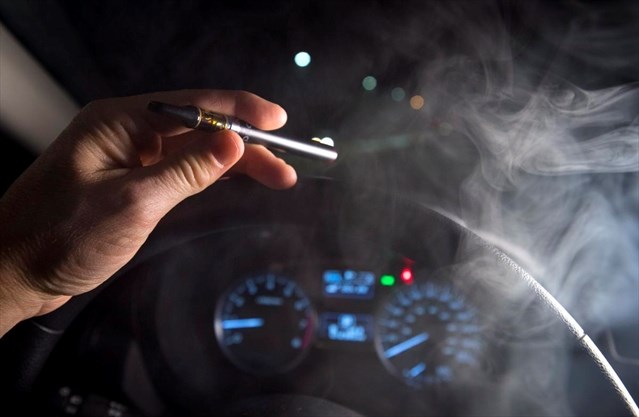Road safety in the cannabis era

Now that cannabis has been legalized in Canada, we need to shift our conversation from the theoretical to reality. At CAA South Central Ontario, what we're focused on, day in and day out, is how to keep our roads and road users safe.
We recently commissioned a study conducted by Ipsos that found Ontario drivers are concerned that the legalization of cannabis may impact their safety behind the wheel. Sixty-eight per cent believe there will be more cannabis-impaired drivers on the road following the legalization. In fact, the study revealed that 1.9 million Ontarians have driven under the influence of cannabis. Among current cannabis users, over half feel that they drive worse than a sober driver when under the influence of cannabis.
With those concerns in mind, it wasn't surprising to hear that 60 per cent of those surveyed support investments in public education campaigns to encourage safe driving. And that's where CAA comes in.
One of our objectives is dispelling common myths about cannabis. This includes the claim that driving under the influence of cannabis is safer than driving after consuming alcohol or the belief that cannabis can sharpen one's ability behind the wheel.
The potential for a collision increases in direct proportion to THC levels (the main intoxicant in cannabis) in our body. This means that cannabis significantly impacts the driver's cognitive and motor functions, which in turn affects decision-making and judgment.
The situation only worsens for poly-users — those who utilize both cannabis and alcohol. Those who drove after taking both marijuana and alcohol tripled their collision risk compared to those who consumed only one substance and considering how the opportunity presents itself for people to mix substances in social situations, this is something to keep in mind this upcoming holiday season.
Here's the thing: At its core, impairment by any substance is still impaired. Being "high" is being impaired. Though cannabis and alcohol may impact you differently, they both affect your ability to drive. It's best to approach cannabis in the same way you do drinking alcohol: avoid it completely before getting behind the wheel.
It is also incredibly important to educate drivers across Ontario about the strong fines and penalties for drug-impaired driving. Drivers determined to be impaired face immediate penalties including suspension of licence, fines, criminal charges and even jail time. For example, if police find a driver with between two and five nanograms (ng) of THC per millilitre in their blood, they're considered to have committed a summary offence and face a maximum fine of $1,000.
A new federal law has also made it unlawful for individuals to drive within two hours of taking cannabis and raised the maximum sentence for dangerously impaired driving to 10 years from five. As for the poly-user? The law recognizes the heightened risks they pose on the roads as well. If caught with 2.5 ng of THC and 50 mg of alcohol in your blood, you'll face a minimum fine of $1,000 — even if you're not technically over the criminal level of alcohol.
Ontario has adopted a zero-tolerance approach for drivers 21 years old and younger and novice G1 and G2 drivers found to be using cannabis. They face an escalating three, seven or 30-day license suspension and other immediate penalties and consequences.
We must remember that driving is a privilege, not a right. The legal response to impairment is strict and swift. But we must also keep in mind that, much like our education around seatbelts and alcohol, it will take time to change habits. It's important to be smart with our choices and to tap into the lessons we've already learned. This includes appointing a designated driver if you're planning on using cannabis, finding an alternative to get to your destination and ensuring we have conversations around the dangers of cannabis with new drivers in our families.
Communities across Ontario are working hard to keep our roads safe. Today we face tremendous opportunity to ensure we continue on that path, but our goal is only possible if we make public education key to our efforts. We hope you join us.
420 Intel is Your Source for Marijuana News
420 Intel Canada is your leading news source for the Canadian cannabis industry. Get the latest updates on Canadian cannabis stocks and developments on how Canada continues to be a major player in the worldwide recreational and medical cannabis industry.
420 Intel Canada is the Canadian Industry news outlet that will keep you updated on how these Canadian developments in recreational and medical marijuana will impact the country and the world. Our commitment is to bring you the most important cannabis news stories from across Canada every day of the week.
Marijuana industry news is a constant endeavor with new developments each day. For marijuana news across the True North, 420 Intel Canada promises to bring you quality, Canadian, cannabis industry news.
You can get 420 Intel news delivered directly to your inbox by signing up for our daily marijuana news, ensuring you’re always kept up to date on the ever-changing cannabis industry. To stay even better informed about marijuana legalization news follow us on Twitter, Facebook and LinkedIn.




